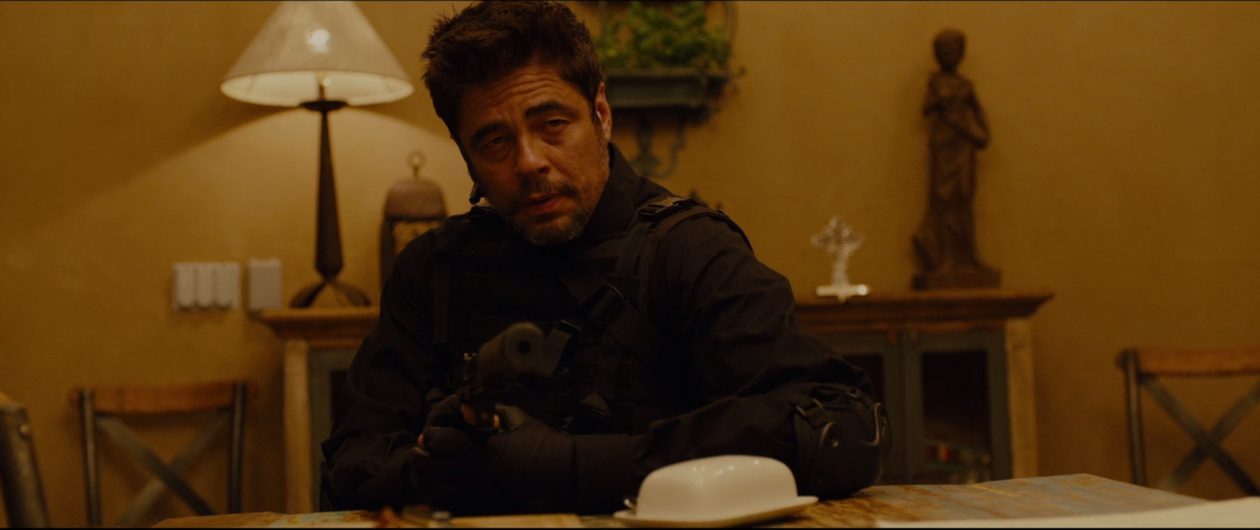In the deep future humanity is both strange yet recognisable. Our species strides across the stars and wields technology far beyond our own. Contrasting these wonders is our return to older ways. A complex feudal web of houses, guilds and religions entwine the species, presided over by an Emperor. In this web stands House Atreides, deep in a blood-feud with House Harkonnen. At the command of the Emperor, House Atreides is gifted with Arrakis; a Harkonnen planet, a barren desert populated by the nomadic Fremen and the sole source of spice, a mysteriously potent drug which keeps the web together. Is this gift too good to be true? The heir of House Atreides, Paul, finds peril and prophecy looming over him and his family as they venture onto Arrakis, informally known as “Dune”.
Over almost six decades, Frank Herbert’s seminal novel has rippled through pop-culture. From the “grim dark” of Warhammer 40,000 to the tangle of intrigue and conspiracy within A Song of Ice and Fire, we owe a lot to Herbert’s work. Despite its rich legacy, Dune has been infamously difficult to adapt to the screen. Multiple abortive attempts were made to put the book on the big screen. Dune was eventually adapted into a film by David Lynch which was quickly disavowed by Lynch upon release and still holds a mixed critical reception. Alongside Christopher Nolan, director Denis Villeneuve ranks as the foremost worldbuilder of his cinematic generation. From the dark of Mexican cartels across the borderlands in Sicario, to the bleak cyberpunk of Blade Runner 2049, Villeneuve has conjured realms of imagination before viewers time and again. In Dune, Villeneuve has unbelievably wrought the planet of Arrakis, and the greater cosmos beyond, to life. From looming spacecraft of strange organic design to the garb of guilds and pilgrims, Villeneuve has turned Herbert’s novel into the tangible real. Dune is an absorbing and overwhelming visual spectacle of pure cinematic beauty that will resonate in the ensuing decades. Villeneuve must be lauded for the impossible task which he has achieved. Villeneuve’s eye has captured everything that a reader has imagined in Arrakis and the story of the Atreides. Hans Zimmer delivers an ethereal score, populated by a language made for the film, which only heightens the surreal and unforgettable experience.
Dune is a visual wonder, and the film is a spectacle above all else. The plot however may disappoint fans of the novel. Villeneuve’s bold but little publicised splitting of the book into two films accommodates the epic scale of the source material. Totalling at almost three hours, Dune lets the story breathe without the rush to a conclusion. The film does benefit from Villeneuve’s slower pace, but many of the sub-plots and arcs for supporting characters are stunted or completely absent. The reach of the novel remains, but at the expense of the story’s gripping claustrophobia and in its absence the film’s human vulnerability fades too. Gone is the stifling sense of both the reader and the characters fumbling through a maze of plots-within-plots. Given the book’s length, Dune’s cut half-way through the story comes across as an abrupt crash landing, whether it is anticipated or not.
Leaving the cinema, my immediate reaction to Dune was disappointment. In the time since viewing the film my attitude has greatly improved. When a film is adapted from a beloved novel, it is difficult for viewers to remain objective. A total recreation often pleases no one, while few film adaptations exist which are divorced from their source material, turning into something separate yet enjoyable. Villeneuve’s Dune is a commendable adaptation which faithfully captures the core story and will engage viewers. The film requires quiet and focus. The audio seemed extremely poor during the Saturday screening I attended, and a rowdy audience worse for the beers lessened my enjoyment. Dune will certainly benefit from repeated viewing, in a quieter screening, while it remains at cinemas. Fans of the novel, including myself, must ease our protectiveness over the story and allow Villeneuve creative liberty.
What must be unreservedly praised is the acting. From supporting roles to the major leads the cast glow with a clear relish for the story and an enjoyment from working with Villeneuve. It is difficult to praise specific actors from a consistent performance. Timothée Chalamet is excellent as the young Paul Atreides, as is Rebecca Ferguson as his mother Jessica. The actors’ performance will certainly be even better in the now-approved second half of Villeneuve’s adaptation as their characters change.
Villeneuve’s Dune is the best adaptation of Frank Herbert’s seminal novel. It may be far from the perfect, but it breathtakingly captures the heart of Herbert’s epic story far in the future. Villeneuve was the best man for the task, and we will soon see the second half of his adaptation.
By Saul Shimmin


